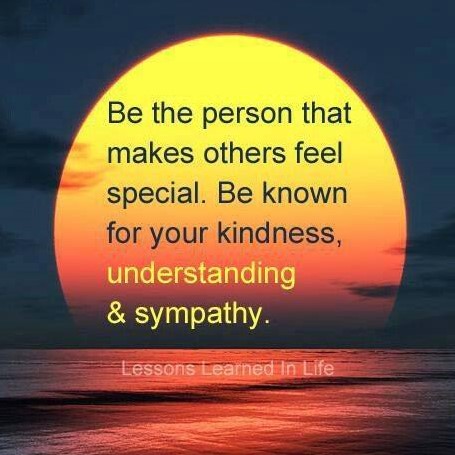
As a result of the inevitable aging process, in further steps of losing just one more marble that was rattling around in my brain, one afternoon, a few weeks ago, I placed my Sam’s card and my credit card on top of my car while pumping gas. I’ll remember, I told myself. Famous last words. When I got to my next destination, I realized what I had done. I drove off, leaving those two once-vital documents floating in the Metairie breeze, only to land gently on the ground, never to be found. I called the credit card company right away, where they canceled the card and said a replacement would arrive in seven days.
During those 7, 8, 9 days, I put up with the inconvenience of not having my credit card and then having to stop all of the auto charges, having to use a debit card, etc. Funny how now, looking back, the farther in the past those inconveniences are, the more minor they have become, soon to result in becoming just a small hiccup in the overall process of daily living.
Until one day, on around day 10, I got a text from my credit card company. “Did you just spend $450 at the Walmart in Marrero?” I immediately pressed the auto response of “no.” The response assured me that the charges were not accepted and that if I was trying to make the purchase, to call them before trying again. So, no harm done. The charges did not go through, and even if they had, the credit card company assured me that I would not be liable. Upon further investigation, it was not my old credit card that was used. It was the new one that was stolen from the mail. It never reached my mailbox (I get emails from USPS letting me know what is on the way), so it was either delivered to the wrong address or it was stolen while in postal custody.
If this was just a “hiccup” of life, an inconsequential event, then why am I writing about it? Because when I am taking my walks and letting my mind roam freely, I find myself wondering who had the nerve to take the credit card and to spend $450. I found myself wanting the person responsible to have to somehow pay for what (s)he did, even if (s)he didn’t get away with it. I picture her/him being humiliated at the register “sir/ma’am, this credit card does not work.” Then s/he had to either leave the items there, humiliated, or pay $450 of their OWN money. All while dozens of people behind him/her sighed and rolled their eyes. Was there a camera in the store? Who is this person? Do they feel any remorse? I wanted this person caught!
Now, I’ve had many bad things happen to me that are much worse than this. As I’ve written before, I’ve been held up at gunpoint twice and knife point once. I’ve been physically attacked. Those things were life-threatening. I will never forget the second perpetrator, I actually looked into his eyes and I could tell that he had no qualms about shooting me. When I found myself wondering what I would do if that man was caught, if I could tell him how he made me feel, I realized a long time ago that he wouldn’t have cared. He was in a different place. My being a victim was the last thing on his mind.
Recently I read a book about unknown facts around large historical events. (Owen J. Hurd, After the Fact). He writes that after the Civil War, Harriet Tubman continued her work of helping others, often doing fundraising drives to help former slaves and other people who were in need. Her generous nature got her into trouble, and many times people took advantage of her. Some literally ate her house of house and home, and some stole the money she raised that was supposed to help others. Harriet Tubman lived a long life, and at the end of her life, I don’t think she regretted any of the money that she lost to those people who stole from her. I think and hope that instead, the memories of how she helped humankind overshadowed the memories of people who took advantage of her.
This reminded me of the scripture that I came across this past week in The Upper Room, a daily bible reading. It is this:
“But to you who are listening I say: Love your enemies, do good to those who hate you, 28 bless those who curse you, pray for those who mistreat you. 29 If someone slaps you on one cheek, turn to them the other also. If someone takes your coat, do not withhold your shirt from them. 30 Give to everyone who asks you, and if anyone takes what belongs to you, do not demand it back. 31 Do to others as you would have them do to you.
Luke 6:27-31, NIV, bold parts done by me.

I hear a lot of people becoming upset over people who receive things without working. They become righteously indignant. They don’t want their taxes to help people who don’t want to work. They don’t know why people need assistance, they just assume that they don’t want to work and should just get a job. I hear people becoming indignant over the sins of others – what others wear, how they live their lives, their conduct at work, who they love or don’t love. Many people are quick to point out how others are destined for hell.
As humans, we can all find ourselves becoming righteously indignant over actions committed by others. Sometimes it may be understandable, especially if we are the victims of some of those bad actions. But when I stew over the things that were done to me that are wrong, I have found that feelings of righteous indignation are not helpful. They stir up my anger and my wrath, but they do not solve the problem. Whoever took my credit card, whoever held a gun to my head, they are not feeling my thoughts. (But perhaps they could benefit from my prayers!). So, my indignant thoughts are only bothering me. Why do we become so righteously angry and stew over the actions of others? Why do we waste time and effort on thoughts that do not lead to justice or peace? Are others having any thoughts of righteous indignation over anything we have done? Because I assume I’m not perfect and have probably upset someone at some point in my life. Because I am human, after all.
As a social scientist, I do ask questions of why – why do people do the things to do, why do they end up on the path they are on, what has led to this situation/event? I believe that knowing the answers to those questions can solve problems in society. When we understand the actions of others, we can try to help them. But this should come from a spirit of love and understanding, not from wanting to “fix” people or for the purposes of revenge or because I’m feeling more righteous. Because the rest of the passage tells us:
32 “If you love those who love you, what credit is that to you? Even sinners love those who love them. 33 And if you do good to those who are good to you, what credit is that to you? Even sinners do that. 34 And if you lend to those from whom you expect repayment, what credit is that to you? Even sinners lend to sinners, expecting to be repaid in full. 35 But love your enemies, do good to them, and lend to them without expecting to get anything back. Then your reward will be great, and you will be children of the Most High, because he is kind to the ungrateful and wicked. 36 Be merciful, just as your Father is merciful.
Luke 6:32-36, NIV, Emphasis mine.
There is a lot of wrong in the world, and people do a lot of bad things. I’m not saying we should let people walk all over us. But for our own sakes and for the sake of peace and community, we should think of the wrongs done against us and others as something we can try to understand and address. After all, we are ALL God’s children, some just don’t know this. Something went wrong in their lives. They are hard for us to love, but they are easy for God to love. So, in theory, it should also be easy for us.

This is so much easier said than done. Even when that trivial credit card issue happened to me, my first instinct was righteous indignation, how dare this person, who do they think they are, s/he should be locked up. But that that attitude is not helpful. I want to have an attitude and a perspective on the world that is helpful and beneficial. Not judgmental. Anyone can judge, but very few will try to understand and explore what lessons can be learned and how we can use those lessons to make the world a better place for ourselves, and more importantly, for others. I want to be like Harriet Tubman. I want to be like Jesus says I should be. But I don’t want to do it alone. I can’t do it alone! Does anyone else want to jump on this bandwagon?
Love your heart, Dallas, and that you always think things through before adopting an opinion. Thank you for always holding God’s love in your heart. Many can learn from you.